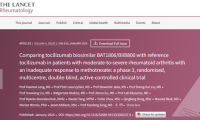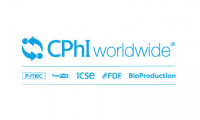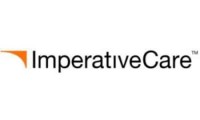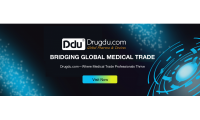-
Henlius Passes Its Second EU GMP Inspection
- Source: drugdu
- 100
- December 26, 2023
-
Previously unrecognized class of antibodies can broadly neutralize multiple virus strains
- Source: drugdu
- 215
- December 25, 2023
-
Merck’s 21-Valent Pneumococcal Conjugate Vaccine Granted FDA Priority Review
- Source: drugdu
- 135
- December 25, 2023
-
The clinical Phase III study results of the BIO-THERA Tocilizumab biosimilar, TOFIDENCE™, have been published in The Lancet Rheumatology.
- Source: drugdu
- 118
- December 22, 2023
-
CPhI Worldwide Europe
- Source: drugdu
- 867
- December 20, 2023
-
AI-Enabled Prescription Digital Therapeutics Should Be An Investment Priority
- Source: drugdu
- 94
- December 19, 2023
-
Imperative Care begins first-in-human study of neurovascular stent
- Source: drugdu
- 126
- December 18, 2023
-
【EXPERT Q&A】How should one start a business in pharmaceutical intermediates?
- Source: drugdu
- 177
- December 18, 2023
-
Abbisko Therapeutics Announces that U.S. FDA Has Granted Fast Track Designation for Its CSF-1R Inhibitor Pimicotinib(ABSK021)
- Source: drugdu
- 104
- December 17, 2023
your submission has already been received.
OK
Subscribe
Please enter a valid Email address!
Submit
The most relevant industry news & insight will be sent to you every two weeks.













